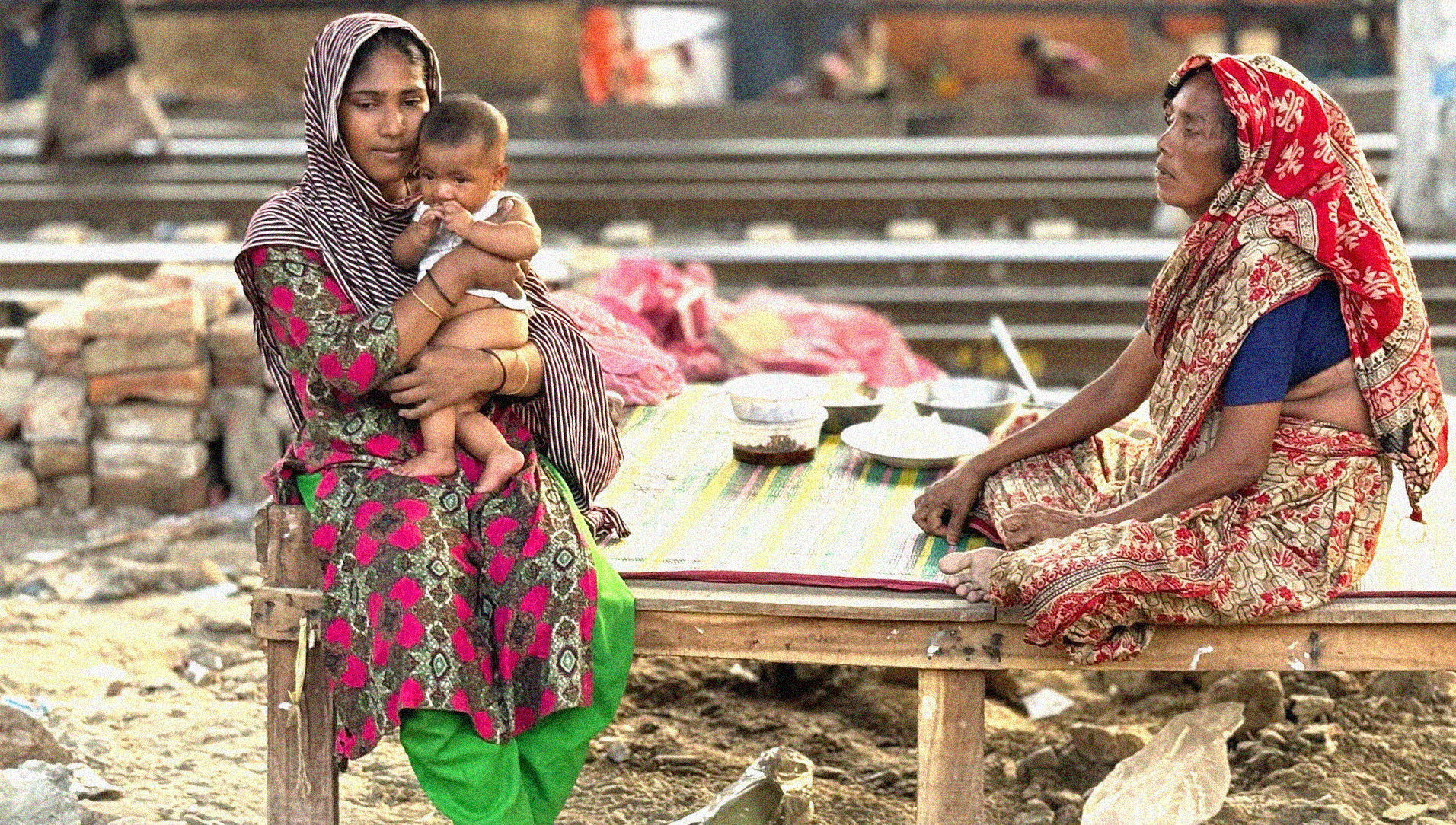CASE STUDY 7
Income Support and Heat Insurance for Women During Extreme Heat Waves
India

Context
Temperatures in India can get as high as 50°C (122°F) during peak summer months. Women working outdoors with little protection are at constant risk of heat exhaustion and heatstroke, as are self-employed women who work from home in poorly ventilated spaces. While heatwaves threaten both men and women, women face unique risks.
Evidence shows that extreme heat has severe maternal health consequences, such as:
Increased risk of preterm birth, gestation hypertension, gestational diabetes, miscarriage, and stillbirth in pregnant women. A global meta-analysis of 27 countries found that for every 1°C increase in temperature, the rate of preterm births increases by about 5% and rises to 16% during a heatwave.
Poorer nutritional outcomes, which particularly impact pregnant women.
Heat’s impacts on agricultural yields and livelihoods can lead to increased forced child marriage, contributing to a lack of reproductive autonomy.
Organization
Climate Resilience for All is a gender-focused climate adaptation nonprofit dedicated to the protection of people and livelihoods from extreme heat and all its impacts.
Approach
The Women's Climate Shock Insurance and Livelihoods Initiative (WCS) is a gender-focused climate adaptation program that was launched in 2024. It is a collaboration between Climate Resilience for All, the Self-Employed Women’s Association (SEWA), Khwendo Kor, and Swiss Re. This initiative engages 50,000 women across three states in India who are connected to SEWA.
When temperatures reach 104 Fahrenheit, SEWA members who have heat insurance receive direct cash payments equivalent to a day's wages. Typically, extreme heat results in women losing 40-50% of wages due to produce being spoiled or hot conditions making it impossible to conduct work.
The insurance package is available for $1 to $3 per year to street vendors, waste recyclers, ship breakers, farmers, salt miners, and other self-employed, heat-exposed women in Gujarat, Maharashtra, and Rajasthan.
Additionally, small direct cash payments are made at lower temperature thresholds to supplement lost income during less extreme heat waves, enhancing women’s decision-making power. WCS also provides job-specific heat early warning systems and protective equipment, such as tarps for sun-exposed crops and cool boxes for meat and produce.
The new program went live in April 2024 in India and will run until April 2025. The first WCS insurance payments have been issued to 42,242 women, providing a lifeline for women who work in the informal sector across three states in India.
Climate Resilience for All plans to roll the WCS product out to communities across India as well as East and West Africa in 2024.
Current Status
Sources: Climate Resilience For All (2024). Women's Climate Shock Insurance and Livelihoods Initiative.
Accessed at: https://www.climateresilience.org/wcsprogram
PDF Innovative Approaches to Addressing Climate Change Impacts on Sexual & Reproductive Health: Case Studies from Around the World


